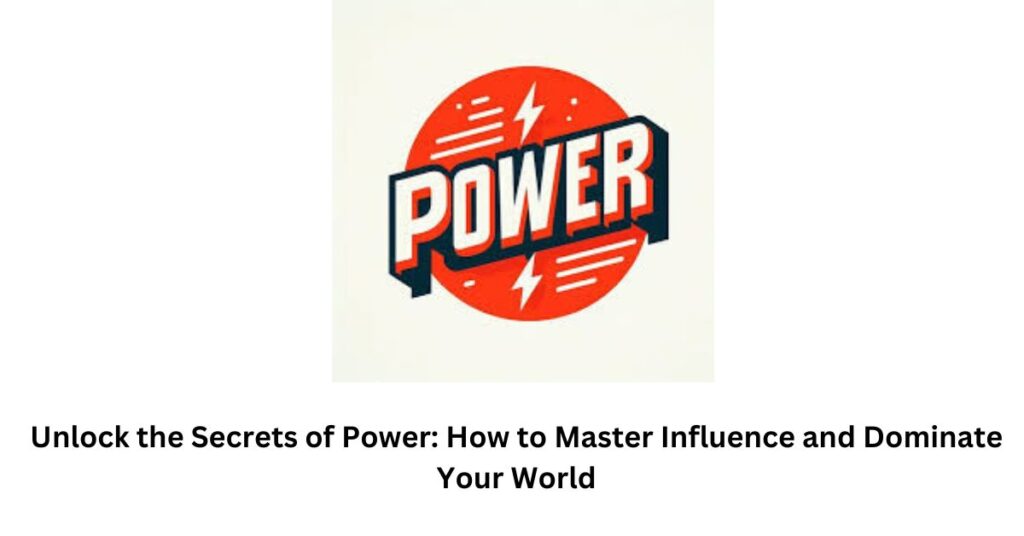Power: The Force That Moves the World
When you hear the word “power,” what comes to mind? Maybe it’s the image of a leader commanding a room, the rush of electricity lighting up a city, or even the subtle strength of someone overcoming adversity. Power is everywhere, shaping our lives in ways big and small. It’s the fuel behind progress, the spark in our innovations, and, sometimes, the force behind our struggles. So, let’s dive into the many faces of power and why it’s so essential.
What Exactly Is Power?
Power is like a chameleon—it changes depending on the context. At its core, power is the ability to influence or control something. But it’s not just about muscles or politics. It can be the energy flowing through your phone charger or the courage to stand up for what’s right.
Think about it: even the tiniest things hold power. A single atom splitting? Boom—nuclear energy. Words spoken at the right time? They can move mountains. Power is all around us; it just wears different hats.
The Types of Power: More Than Just Physical
1. Physical Power
This one’s pretty straightforward—think strength, energy, and brute force. From bodybuilders lifting insane weights to the powerful currents in rivers generating hydroelectricity, physical power is all about tangible strength.
2. Social Power
Ever been in a group and noticed how one person’s opinion seems to carry more weight? That’s social power in action. It’s the ability to influence people, whether through charisma, authority, or relationships. Politicians, celebrities, and even your favorite teacher wield this type of power.
3. Emotional Power
This one’s a little trickier to see but just as impactful. Emotional power is about controlling how we feel or influencing the emotions of others. A heartfelt movie, an inspiring speech, or even a simple hug can pack a powerful punch.
4. Economic Power
Money talks, right? Economic power is the ability to control resources, wealth, and the decisions that flow from them. Corporations, governments, and even individuals with financial savvy wield this type of influence.
5. Natural Power
Mother Nature is the ultimate powerhouse. Think hurricanes, volcanoes, and the energy of the sun. This type of power is awe-inspiring and a reminder that we’re small players in a much bigger game.
Power in Technology: The Digital Dynamo
In today’s world, power has a digital twist. Technology drives everything, from how we communicate to how we work. Your smartphone? It’s basically a mini power station in your pocket. AI, big data, and the internet have revolutionized what power looks like.
But here’s the catch: digital power isn’t always visible. Companies like Google and Meta influence what we see, think, and do. They control algorithms that shape the world’s conversations, proving that power doesn’t always need to roar—it can whisper, too.
The Dark Side of Power
Let’s not sugarcoat it: power isn’t always a good thing. Like fire, it can warm or burn, depending on how it’s used. History is full of examples where power has been abused—dictatorships, corporate monopolies, and even personal relationships gone wrong.
Ever heard the saying, “Absolute power corrupts absolutely”? It’s a cautionary tale about how too much power in one place can lead to imbalance, greed, and harm.
Harnessing Power for Good
But here’s the flip side: power can also be a force for good. Think of activists like Martin Luther King Jr., who used social and emotional power to fight for civil rights. Or scientists like Marie Curie, who harnessed the physical power of radioactivity to advance medicine.
The key is balance. Power, when shared and checked, becomes a tool for progress rather than oppression. It’s about using power to uplift, not overshadow.
Personal Power: Yes, You’ve Got It Too!
Don’t underestimate your own power. You might not control a country or command legions of followers, but your personal power is just as impactful.
Self-Belief
Believing in yourself is the first step. It’s the inner fire that fuels your actions and decisions.
Influence
Even small acts—like helping a friend, sharing an idea, or standing up for someone—can create ripples.
Resilience
Your ability to bounce back from setbacks is a quiet but potent form of power. It’s not about never falling but always getting back up.
Why Power Matters
Why does all this talk of power even matter? Because understanding power helps us navigate the world better. It helps us recognize who holds the reins, when to challenge authority, and how to claim our own space.
Power is the heartbeat of progress. It’s in the engines of our cars, the votes we cast, and the passions that drive us. By understanding it, we can harness it to build, grow, and thrive.
Conclusion: Embrace Your Power
Power isn’t just for the rich, famous, or strong—it’s for everyone. It’s in your voice, your actions, and your ability to dream big. So, ask yourself: how are you using your power?
Whether it’s standing up for a cause, leading with kindness, or simply charging through your day with determination, your power matters. Own it, respect it, and use it wisely because, like a current in a river, power flows best when it’s guided with care.
The Evolution of Power Through History
Power isn’t static—it evolves, just like humanity. In ancient times, power was often measured by physical dominance or land ownership. Kings ruled empires, warriors conquered territories, and wealth was stored in gold and treasures. Fast forward to today, and power takes on far more abstract forms, from knowledge to innovation.


